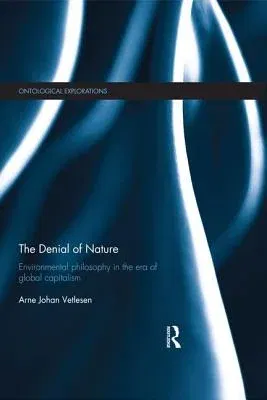A study of the increasingly precarious relationship between humans and
nature, this book seeks to go beyond work already contributed to the
environmental movement. It does so by highlighting the importance of
experiencing, rather than merely theorizing nature, while realizing that
such experience is becoming increasingly rare, thus reinforcing the
estrangement from nature that is a source of its ongoing human-caused
destruction. In his original approach to environmental philosophy, the
author argues for the reinstatement of nature's value outside of its
exploitative usefulness for human ends. Such a perspective emphasizes
the extent to which the environmental problem is a concrete reality
requiring urgent action, based on a multi-sensuous appreciation of
humans' dependence on nonhuman lifeforms.
Designed as an accompaniment to undergraduate and postgraduate research,
The Denial of Nature draws on empirically informed literature from the
social sciences to examine what life is really like for humans and
nature in the era of global capitalism. The book contends that
capitalist society exploits nature - both in the form of human capital
and natural capital - more relentlessly than any other and offers an
environmental philosophy which actively opposes current developments.
Through discussions of the work of Teresa Brennan, Theodor Adorno,
Martin Heidegger and Hans Jonas, and through a radical critique of the
nature deficit in Jürgen Habermas' theory of capitalist modernity, The
Denial of Nature relies on insights from Critical Realism to bring
together several, seldom-linked philosophies and suggest a new approach
to the heavily-discussed question of environmental ethics.
Arne Johan Vetlesen is Professor of Philosophy at the University of
Oslo, Norway and the author of twenty books among them *Perception,
Empathy and Judgment: An Inquiry into the Preconditions of Moral
Performance *(1994), *Closenes: An Ethics *(with H. Jodalen;
1997), *Evil and Human Agency *(2005) and A Philosophy of Pain
(2010).
.

